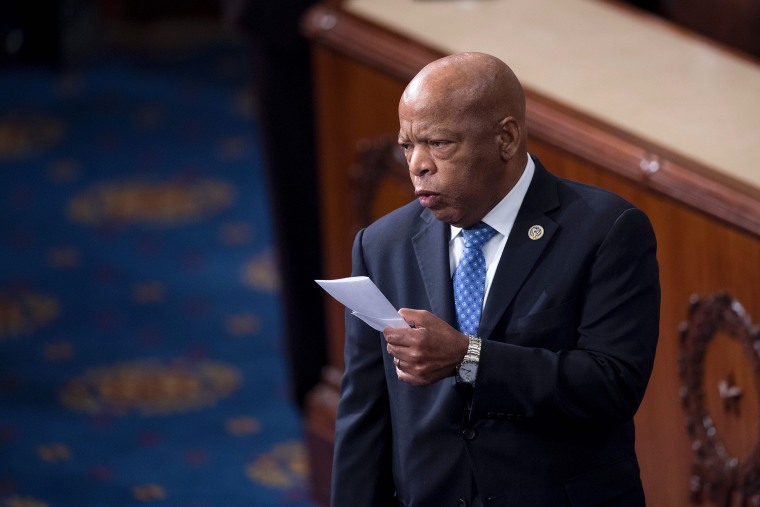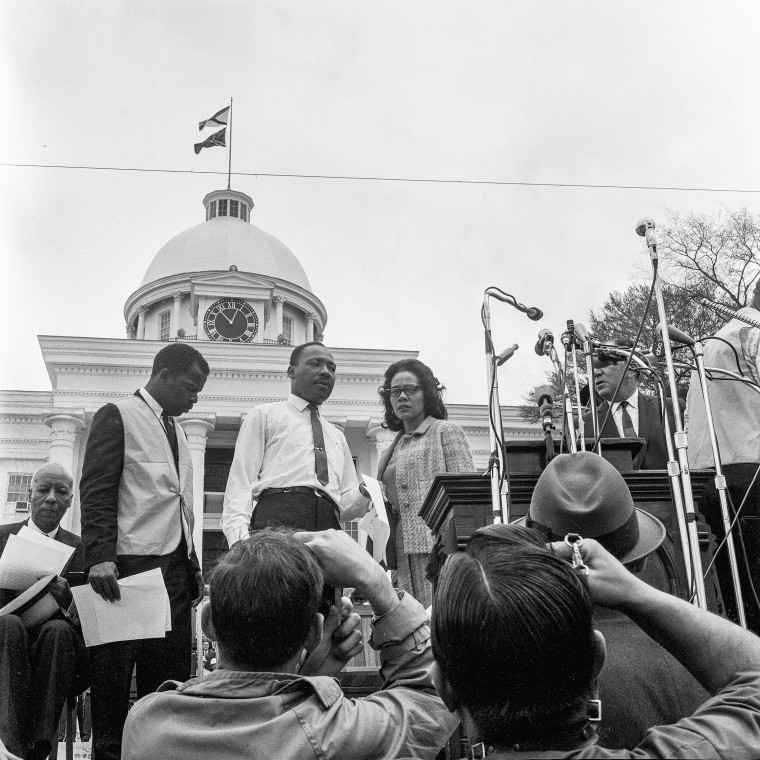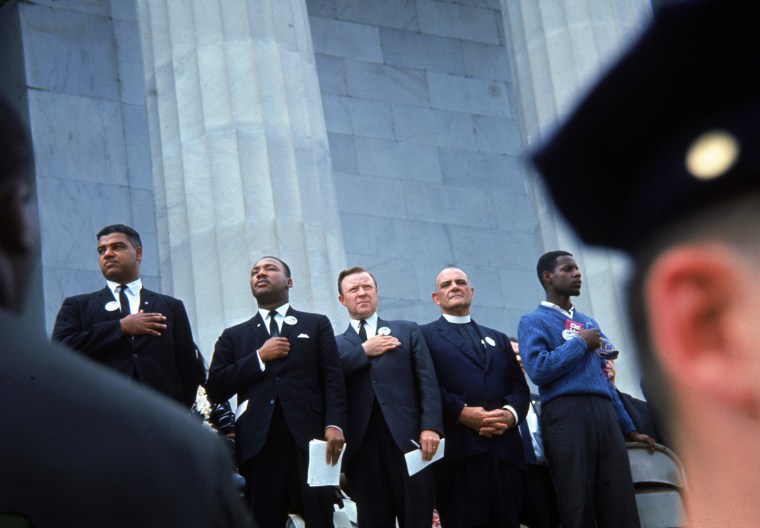Since President Ronald Reagan reluctantly signed the Martin Luther King, Jr. holiday into law in 1983, it has become American custom to celebrate Dr. King as a moral leader in our nation's history.
But until recently, talking about morality in America's public square has been an activity all but limited to Republicans. The Trump presidency has irrevocably changed that — for the better.
For instance, on the first day of this 116th Congress, civil rights activist and Rep. John Lewis, D-Ga., joined colleagues in the new Democratic majority to introduce House Bill 1, a 571-page omnibus package designed to expand and protect voting rights. Recalling that he and others spilled their blood on the Pettus Bridge in Selma, Alabama to advocate for the expansion of voting rights, Lewis said, “I truly believe deep in my heart, in my soul, the way votes were not counted and purged in Georgia and Florida and other states changed the outcome of the last election. That must never happen again in our country.”

Before Lewis could finish his statement, fellow Democrats had joined in with shouts of “Amen,” like a congregation in the prophetic black church tradition that Lewis calls his spiritual home.
Democrats concluded that presentation of their legislative priorities with a call-and-response appeal to the public faith of the civil rights era — all a direct appeal to morality on opening day.
The language of faith and morality has often been noticeably absent on the left since the 1980s, when the religious right cemented its political dominance under Reagan and the Catholic Church began publicly condemning and then threatening with excommunication openly Catholic Democrats who supported reproductive rights.

That is partly because, after the New Right of the late 1970s formed a “pro-family” coalition to organize cultural conservatives around opposition to reproductive rights post-Roe v. Wade and the ratification of the Equal Rights Amendment, white Southerners who had previously resisted the civil rights movement found new language to articulate their opposition to the policy agenda of Lewis and others on the left. The Moral Majority’s “culture wars” offered those white conservatives, then alienated from the Democratic party, a way to feel righteous about resistance to a progressive political agenda: Cultural conservatives weren’t defending white values, but "family values."
In the imagination of most Americans — conservative and liberal — the GOP then became "God’s Own Party."
There were, of course, hold-outs: The historically black Baptist, AME and AME Zion churches, the National Council of Churches and progressive evangelical organizations like Sojourners continued to point out in public life that Jesus and the biblical prophets consistently advocated for the poor, the immigrants and the children. For many non-white religious voters, their experiences of cultural marginalization allowed them to vote for Democrats (who mostly opposed that marginalization) while faithfully attending their houses of worship; the culture wars, they understood, were not for them. But in the media and public debates, cultural conservatives increasingly became the public voice of "morality."
Thus, for much of the past four decades, the “Amen” corner in Congress has been solidly on the Republican side of the aisle.
But, as Francis FitzGerald noted in her 2017 book "The Evangelicals: The Struggle to Shape America," the religious right’s narrow appeal to family values was less persuasive to many millennials who attended multicultural public schools and understood wealth inequality and global warming as issues directly impacting them and their children. A realignment of faith in public life has been underway for a generation, allowing for progressive politicians and advocates to re-embrace using the language of morality to characterize their policy positions.
House Speaker Nancy Pelosi, D-Calif., for instance, has made a point of saying that she and other Democrats reject President Trump’s demand for a wall on the Southern border because it is an immoral appeal to xenophobia and white nationalism. And, in their advocacy for economic measures that would expand opportunity to poor and marginalized communities and protect the environment, Sens. Corey Booker, D-N.J., Kamala Harris, D-Calif., Bernie Sanders, I-Vt., and Elizabeth Warren, D-Mass., have consistently presented economic opportunity and equal protection under the law as part of America’s moral obligation.
But the tipping point against Republicans as the arbiters of morality may well be the full-throated endorsement of a blatantly immoral and dishonest president by traditional religious right spokesmen like Franklin Graham, Jerry Falwell, Jr. and James Dobson. (Falwell, for his part, recently told the Washington Post that there’s nothing Donald Trump could do to lose the support of evangelicals.) While the previous generation was trained to equate morality with cultural conservatism through a political lens, evangelicals have diversified along with the rest of America over the past generation.
Plus, while white evangelicals were never a majority of the people of faith in America, the moral bankruptcy of the Trump administration has exposed their disproportionate influence on faith in public life. Democrats, it seems, are taking this opportunity to reclaim the high ground in American public life.
Of course, enacting a moral agenda in America will require more than resistance to voter suppression, an immoral wall and corporate influence in Washington. If morality is to be at the heart of the “more perfect union” toward which our religious and constitutional traditions point us, then it does not and cannot belong to either party or to any individual. Political morality is and must rather be an aspiration informed by all of our faith traditions.
Still, if Democrats have decided that the language of morality belongs to them, too, I celebrate that as a sign that we may be moving toward a more honest public conversation about how our deepest values as a diverse people can contribute to the good of the whole. To that, I say, “Amen!”

